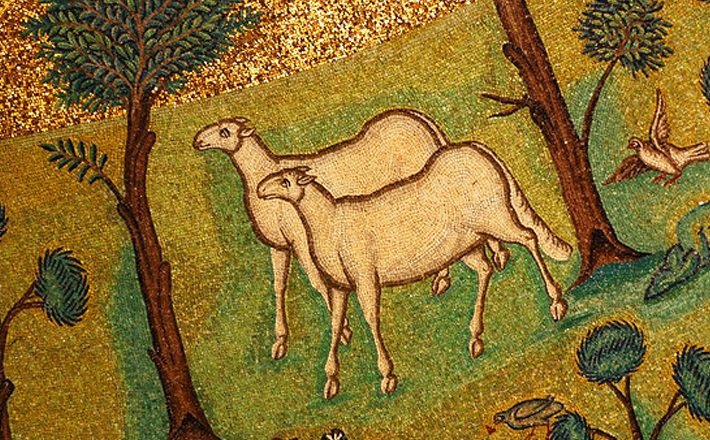Commentary on Jeremiah 23:1-6
Just as sheep need a shepherd to guide and protect them, the people of Israel need responsible leaders to provide for them. Wise leadership matters.
Jeremiah 23:1-6, which concerns shepherds and their sheep, was chosen for this Sunday in July because of the thematic connection to the Gospel reading, Mark 6:30-34, 53-56, which includes a description of the crowd following Jesus “like sheep not having a shepherd.” As we will see below, this image of shepherd-less sheep provokes feelings of anxiety and concern.
As you probably know, there are two tracks for the First Readings from the Revised Common Lectionary during the season of Pentecost. The Jeremiah passage is appointed for the track that provides complementary readings for the Gospel Reading. The other track provides a more consecutive and canonical reading through portions of the Old Testament.
Our passage issues judgment to shepherds who have not upheld their duties to their flock. Jeremiah is not concerned with actual livestock and real shepherds. Instead, the prophet is using a common metaphor from the ancient Near East to speak of human kings and leaders as shepherds to the people. The ovine imagery is appropriate since the duties and responsibilities of shepherds would be well-known to ancient readers. Shepherds are supposed to take care of their sheep. Feed them; protect them; guide them.
But the kings have not been good shepherds given that the sheep now find themselves in exile, scattered among the nations. God blames these leaders for destroying and scattering the sheep. Given the use of the plural, shepherds, we are to assume that a whole set of Judah’s kings is responsible, not just a single figure.
This judgment against the leadership brings up the question of responsibility and accountability. This passage from Jeremiah seems to want to place all the blame for the exile on the Judahite leadership (more specifically, the last few kings of Judah before the Babylonian conquest of Jerusalem). But can we always blame the shepherds for the disastrous affairs among their sheep fold? What role might the sheep play also in this scattering? And how about other nations’ shepherds who have held more political and military power? The theological and ethical perspective of Jeremiah 23 is quite narrow: woe to the shepherds!
The shepherd is indeed a very biblical image. Psalm 23 uses this same imagery to speak of God as a shepherd. Shepherds take their sheep to green pastures and still waters and along correct paths. They protect them with their rod and staff in the darkest valleys. Likewise, Ezekiel 34 speaks of the leaders of Israel as shepherds and of God as the good shepherd. God seeks out the scattered sheep and rescues them from dangerous places.
Many of us today do not have intimate knowledge of these pastoral responsibilities. The metaphor of a shepherd really works only for those of us with prior biblical knowledge or livestock experience. How might we reimagine this metaphor for today? How do we speak of and imagine leadership? Similarly, many of us do not live under the rule of a king. To conceive of God as a king does not resonate as well with a people of democracy. We need perhaps new metaphors for leadership, a way to update and expand our biblical metaphors. But where shall we obtain these understandings of leadership? Should we think of God as the good C.E.O.? or the President?
God’s solution to this instance of poor leadership is forthcoming. The oracle of judgment becomes an oracle of salvation in verse 3. God takes the initiative. God will gather the flock from their scattering, bringing them back to the fold of the land of Israel, and raise up new shepherds, new leaders, for them.
Verses 5-6 then move beyond the shepherd metaphor to speak of a righteous branch. God will raise up a Branch who will reign wisely so that Judah and Israel will be saved. Jeremiah has in mind an earthly king or line of royal figures here, a future Davidic monarchy.
Finally, we get a glimpse of the characteristics of a proper leader or shepherd in verse 5: the execution of justice and righteousness in the land. The specifics of this type of wise leadership are still withheld, as these details are not a part of the rhetorical goal of this oracle of promise. Nevertheless, we have a promise of new leadership. God will begin again with the house of David to enthrone a sagacious shepherd.


July 19, 2015